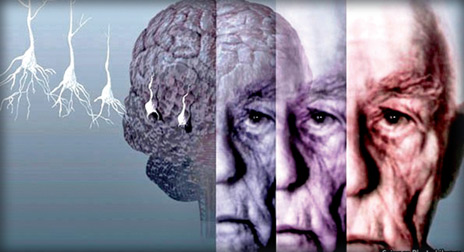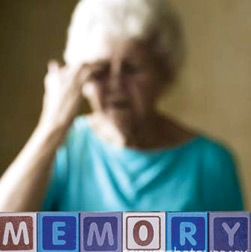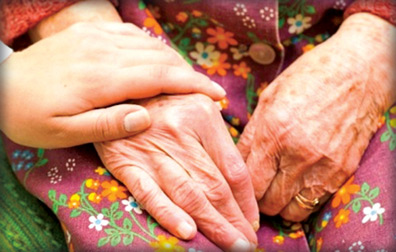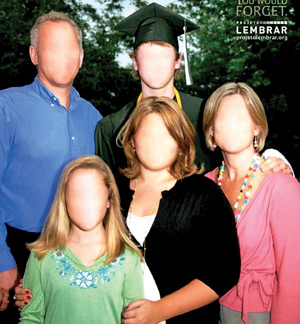|

Ten years ago people talked confidently of stopping
Alzheimer’s disease in its tracks. |
Today is World Alzheimer’s Day:
When memory fails …
By Carol Aloysius
Rita, 63, was a busy, active housewife who was constantly on the
‘go’. Up at dawn to cook meals for her elderly husband and two grown
children who still continued to live with their parents despite being in
their late 20s, she spent the rest of the day cleaning, marketing,
gardening and reading. She also regularly indulged in her favourite past
time of doing crosswords. “It helps to keep my memory sharp”, she would
tell anyone who questioned her passion for this particular past time. ..
However, for the past few weeks she found that her usual excellent
memory seemed to be slipping…
For one thing she was constantly misplacing things. She had trouble
remembering simple things like where she had kept her car keys, why she
had opened the fridge door, where she had kept the broom which she had
just used to sweep the floor. She even had trouble remembering the name
of her two pet cats, including her domestic of many years. Sometimes
even the names of her family members eluded her.
Having put down her lapses in memory to ‘old age’, the family was
jolted into realisation that something was seriously wrong with Rita
only when she took to slipping out of the house at odd hours of the day
and having to be brought home by neighbours since she could not remember
where she lived. When she was taken to a neurologist, her family was
devastated to learn that she was diagnosed as having Alzheimers Disease
(AD). “Our whole world revolved around my wife who was a fiercely
independent woman. Now she’s as helpless as a baby and we have to take
care of her”, laments her husband.
Sixty year old Lakshmi’s house was once filled with the sounds of
laughter and happy chatter. When her husband died and her children and
grandchildren left the family home, Lakshmi found herself becoming
increasingly depressed. “I was living alone with few visitors to
brighten my day. I began losing my ability to sleep and desire to eat”,
she said. She also began experiencing memory loss. When a niece took her
to the family physician, he diagnosed her condition as the early stages
of Alzheimers disease (AD).
 Memory loss caused by Alzheimers is increasingly affecting a
significant number of persons worldwide. Worryingly, this condition,
once commonly found in people over 70 years, is now seen in people less
than 65 years of age and even among those in their 50s and late 40s.
Dealing with the disease is harder for the caretakers than the patient
when it reaches an advanced stage as the patient needs full time
attention, since he or she is unable to perform even the most trivial
daily tasks such as brushing one’s teeth, washing one’s face, using the
toilet, bathing or changing one’s clothes. For family members, the most
distressing aspect of the disease is the inability of their parent/aunt
to recognise them. Memory loss caused by Alzheimers is increasingly affecting a
significant number of persons worldwide. Worryingly, this condition,
once commonly found in people over 70 years, is now seen in people less
than 65 years of age and even among those in their 50s and late 40s.
Dealing with the disease is harder for the caretakers than the patient
when it reaches an advanced stage as the patient needs full time
attention, since he or she is unable to perform even the most trivial
daily tasks such as brushing one’s teeth, washing one’s face, using the
toilet, bathing or changing one’s clothes. For family members, the most
distressing aspect of the disease is the inability of their parent/aunt
to recognise them.
All this puts a severe psychological strain on all those closely
involved in caring for an Alzheimers patient. Yet, in spite of the fact
that more people are now being afflicted with Alzheimer’s disease (AD),
not many are aware of the symptoms or how to deal with it. To find out
more of the disease.
What is Alzheimers Disease?
A Neurologist to whom the Sunday Observer spoke, described AD thus:
“AD is an illness, of the mind. It is also an irreversible, progressive
brain disease that slowly destroys memory and thinking skills, and
eventually the ability to carry out the simplest tasks. Age, he
emphasised, was the most significant contributory factor.
The classic sign of early Alzheimer’s disease is gradual loss of
short-term memory. Symptoms vary from person to person, but all people
with Alzheimer’s disease have problems with memory loss, disorientation
and thinking ability, trouble in finding the right words to use,
recognising objects (such as a pencil), recognising family and friends,
and may become frustrated, irritable, and agitated.
As the disease progresses, physical problems may include loss of
strength and balance, and diminishing bladder and bowel control. As more
and more of the brain is affected, areas that control basic life
functions, like swallowing and breathing, become irreversibly damaged,
resulting eventually in death. Symptoms progress at different rates and
in different patterns.
 The appearance and progression of symptoms will vary from one person
to another, he says. On average, from onset of symptoms, people with
Alzheimer’s disease can live from eight years (the average) up to 20
years. The appearance and progression of symptoms will vary from one person
to another, he says. On average, from onset of symptoms, people with
Alzheimer’s disease can live from eight years (the average) up to 20
years.
Treatment
No treatment is yet available that can stop Alzheimer’s disease.
However, some drugs may help delay the progression of symptoms
associated with Alzheimer’s disease. Also, some medicines may help
control behavioural symptoms, such as sleeplessness, agitation,
wandering, anxiety, and depression. Treating these behavioural symptoms
often makes people with Alzheimer’s more comfortable and makes their
care easier” he points out.
However much of the well-being of the patient depends on the
Caregiver, he adds.
A psychologist we spoke to explained why. “As the disease progresses,
more and more patients will become dependent for self-care and
activities of daily living (feeding, washing, toileting, grooming,
dressing etc). This stage will require constant carer support. Even in
the early stages, carers may be needed to accompany patients when they
go out as they have problems with orientation. Since caring is a full
time job the carer too may be in need to counselling and suffer from
mental impacts. In fact, both the patient and the carer may need this at
different stages.”
Although caring for Alzheimers patients requires special skills, few
efforts have been made in this direction until Lanka Alzheimers
Foundation (LAF) came forward with an innovative training program to
train care givers.
Sri Lanka Alzheimer’s Foundation
Set up to improve the quality of life of those with Alzheimer’s and
related dementia and enhance the well-being of their families and carers,
the Sri Lanka Alzheimers Foundation (LAF) is the first non-statutory
organisation dedicated to advocating and addressing the needs of those
diagnosed with cognitive impairment and dementia. It is an approved
charity (Gazette Notification No 1225), incorporated in 2001 and
registered with the Ministry of Social Service and since its inception,
it has made a significant contribution towards supporting both
Alzheimer’s patients and their carers.
 “The services of LAF are open to all on a no-charge basis, regardless
of ethnicity or religious background. “If you are concerned about your
memory or that of a loved one, if you are a family carer of a Person
With Dementia (PWD), if you are interested in receiving education and
training, or if you are a health professional wishing to refer a PWD to
our services, we invite you to talk to us. The right to confidentiality
is maintained at all times”, says Lorraine Yu Founding Director and
President of the Foundation. Services provided by LAF include: Raising
awareness and eradicating stigma - thereby creating a dementia-friendly
environment so that PWDs and their carers do not feel trapped in the
home environment. “The services of LAF are open to all on a no-charge basis, regardless
of ethnicity or religious background. “If you are concerned about your
memory or that of a loved one, if you are a family carer of a Person
With Dementia (PWD), if you are interested in receiving education and
training, or if you are a health professional wishing to refer a PWD to
our services, we invite you to talk to us. The right to confidentiality
is maintained at all times”, says Lorraine Yu Founding Director and
President of the Foundation. Services provided by LAF include: Raising
awareness and eradicating stigma - thereby creating a dementia-friendly
environment so that PWDs and their carers do not feel trapped in the
home environment.
As she says, caring for a patient with Alzheimers Disease is not
easy. Currently we conduct several programs both to educate and provide
information. We also have a Befriending and Counselling program. In
addition, we also conduct memory screening programs. The Foundation runs
an Activity Centre (for persons diagnosed with Mild Cognitive Impairment
or dementia where our clients engage in social interaction, mental
stimulation and physical activity, which has a positive impact resulting
in the retarding the progression of the illness).
The Helpline: 0112667080 or access website: www.alzlanka.org
The public can also help by volunteering at the Activity Centre or by
participating in the annual Dementia Awareness Campaign and other fund
raising events organised throughout the year to sustain the services
offered to people who have been forgotten by society because their
memory has failed them. |

